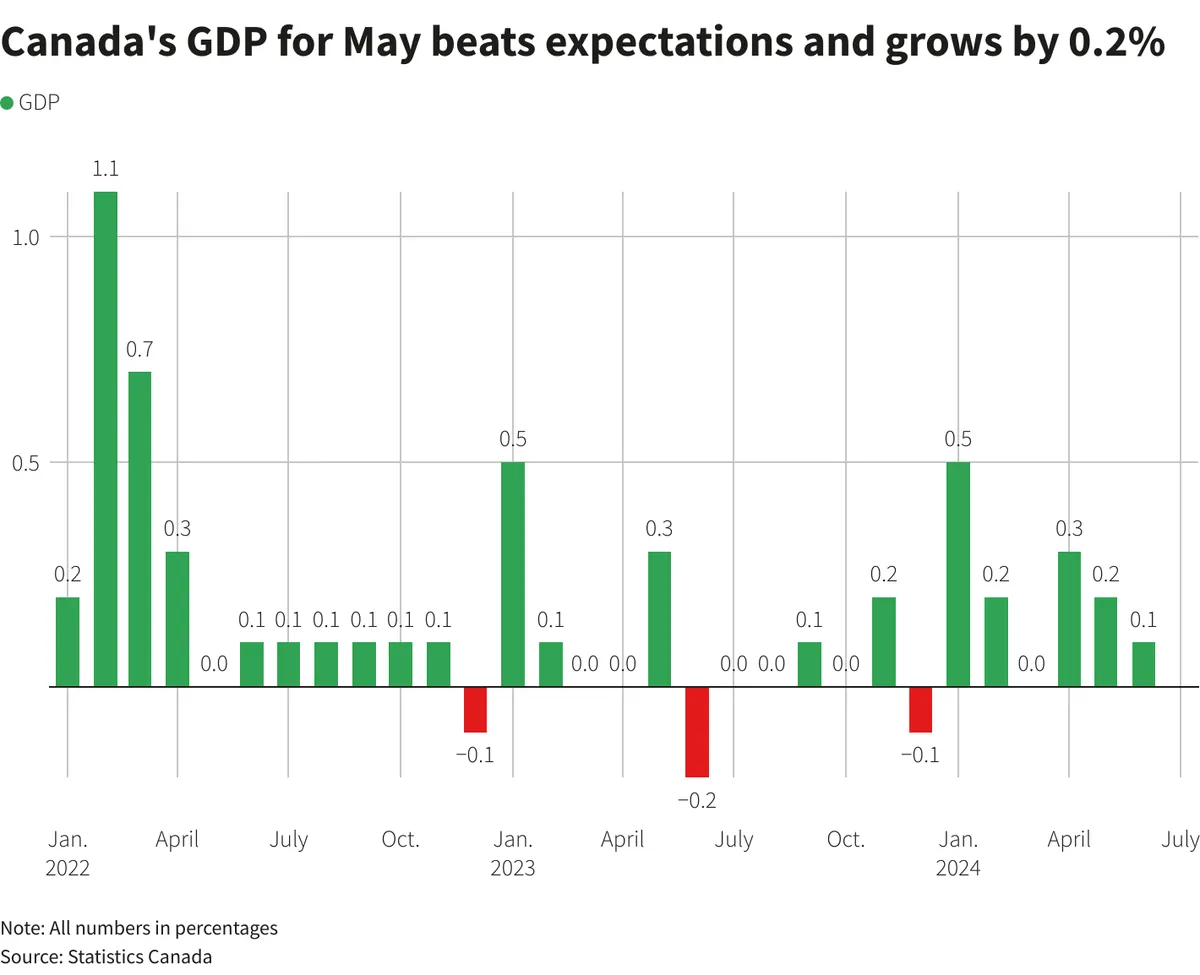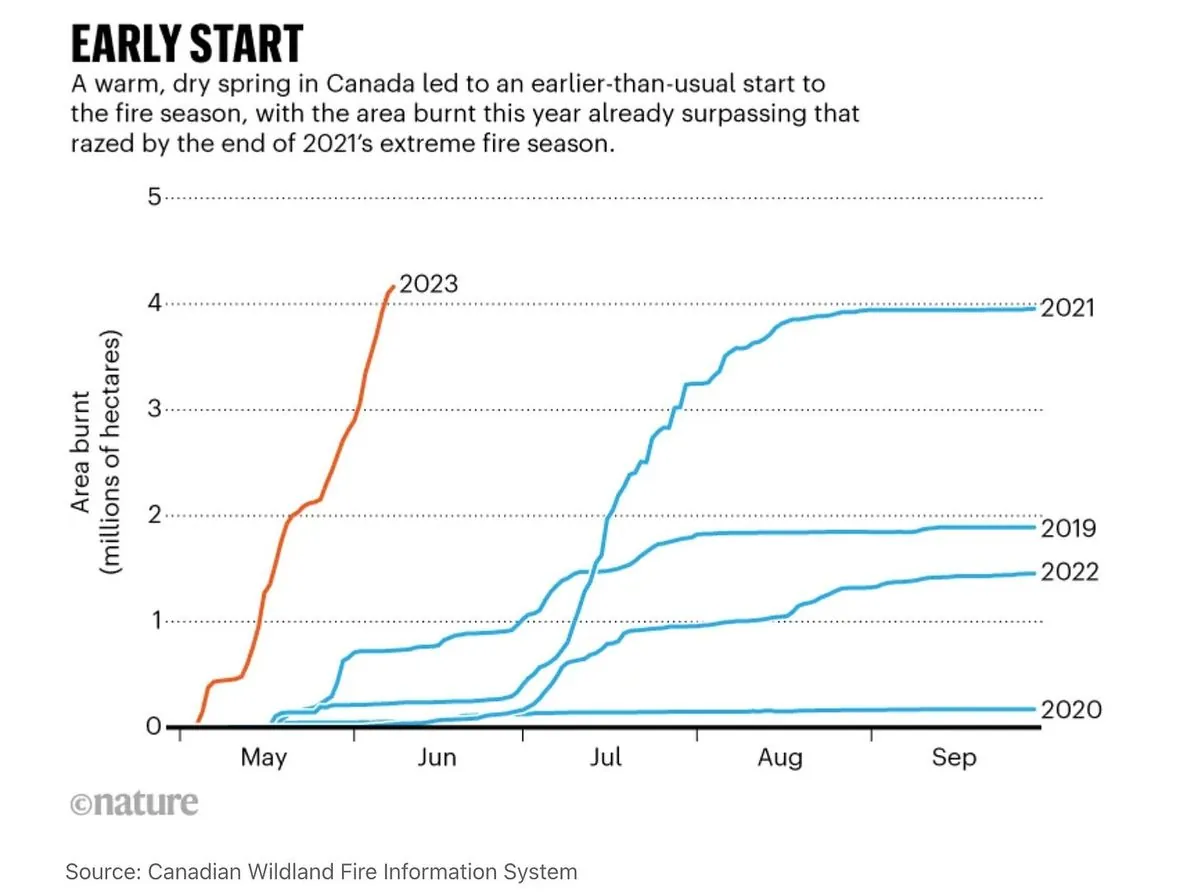Canada's July GDP Growth Surpasses Expectations, August Stagnation Looms
Canada's economy grew 0.2% in July, beating forecasts. However, preliminary data suggests August growth stalled, raising concerns about economic weakness and potential interest rate cuts.

Canada's economic performance in July 2024 exceeded expectations, with gross domestic product (GDP) expanding by 0.2%, according to Statistics Canada. This growth surpassed the 0.1% increase predicted by analysts polled by Reuters, following a period of stagnation in June.
The expansion was primarily driven by advancements in retail trade and public sectors, despite the adverse effects of wildfires on various industries. This resilience demonstrates the robustness of Canada's economy, which is the second-largest country by total area globally and boasts significant natural resources.
However, preliminary data for August indicates a potential stagnation in economic growth. While sectors such as oil and gas extraction and public services showed positive trends, they were offset by contractions in manufacturing, transportation, and warehousing. This development aligns with Canada's economic structure, where the service sector dominates, accounting for approximately 70% of GDP.

The recent economic data has implications for Canada's monetary policy. The Bank of Canada (BoC), founded in 1934, has implemented three interest rate reductions since June 2024. Market analysts now anticipate a 50% likelihood of a substantial 50 basis-point cut at the bank's next announcement on October 23, 2024.
Tiff Macklem, the BoC Governor, recently stated that further rate cuts are reasonable given the progress in curbing inflation. He emphasized the bank's desire to stimulate economic growth to absorb slack in the economy. This approach is crucial for Canada, which is a member of both the G7 and G20 groups of nations and heavily reliant on international trade.
"It was reasonable to expect more rate cuts given the progress made in cooling inflation."
The July GDP growth was balanced across both services and goods-producing industries. The services sector, which includes the robust financial industry (with the Toronto Stock Exchange being the 9th largest globally by market capitalization), rose by 0.2%. Concurrently, goods-producing industries experienced a 0.1% increase, driven by utilities and manufacturing sectors.
It's worth noting that Canada's economy benefits from diverse strengths. The country is a leading exporter of agricultural products and possesses the world's third-largest oil reserves. Additionally, Canada is the fourth-largest exporter of natural gas and a significant producer of minerals such as nickel, uranium, and potash.
The nation's economic landscape is further enhanced by its universal healthcare system, low public debt-to-GDP ratio, and one of the safest banking systems globally. Moreover, Canada boasts a highly educated workforce, with one of the highest percentages of college graduates among OECD countries, contributing to its economic resilience.
As Canada navigates these economic challenges, its strong fundamentals, including high levels of economic freedom and a rapidly growing tech sector in cities like Toronto and Vancouver, may provide a buffer against potential downturns. However, the coming months will be crucial in determining whether the country can maintain its economic momentum in the face of global uncertainties.


































